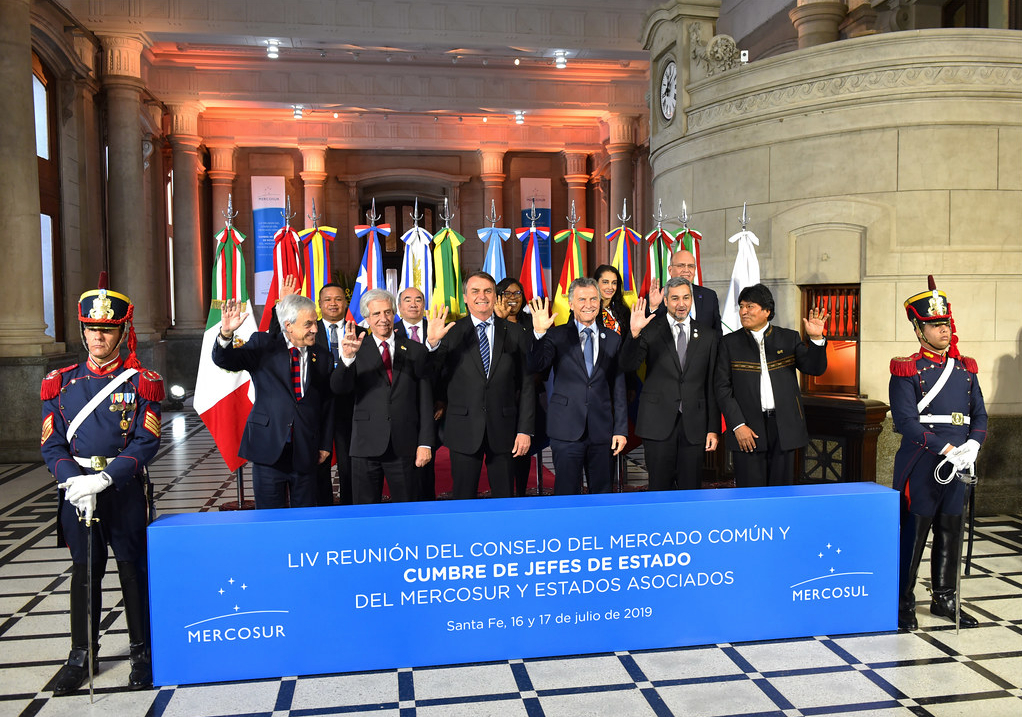Co-author Melany Barragán
The “Patria Grande” that Bolivar dreamed of, more than two centuries ago, is still a chimera. Despite the advance of globalization, the proliferation of international organizations or the development of integration experiences such as the European Union, Latin America still does not find the keys to articulate a successful communitarian process.
Neither the periods of bonanza nor the critical junctures have allowed the different countries of the region to come together to create a common project. And, in the short term, neither the health nor economic crisis that the world is going through, nor the new stage that is opening with the transition of power from its northern neighbor, seems to be altering the situation. While crises and wars were an opportunity to unite peoples in the past, Latin America continues to miss the mark.
Precedents of integration
It would be a mistake to deny that steps have been taken in this direction. The Pan-American conferences, promoted by the United States during the first half of the 20th century, began to shape a system of technical and commercial cooperation in the region, as well as a hemispheric diplomacy that materialized with the creation of the Organization of American States (OAS). Later, in the second half of the last century, Latin American countries began to develop their own integration organizations. Many of them emerged with the objective of prioritizing free trade areas among the signatory countries and over time they tried to deepen the processes of interdependence by establishing customs unions and common markets.
It was during this period that organizations such as the Latin American Free Trade Association (LAFTA), the Latin American Integration Association (LAIA) or the Latin American and Caribbean Economic System (SELA, 1975) emerged. Intergovernmental organizations such as the Andean Community of Nations (CAN) or the Southern Common Market (Mercosur) also began to proliferate.
In the 21st century, the process does not stop and new organizations such as the Bolivarian Alliance for the Americas (ALBA), the Union of South American Nations (UNASUR) or the Community of Latin American and Caribbean States (CELAC) emerge. The most recent is the Forum for the Progress of South America (PROSUR), created at the initiative of Sebastián Piñera in response to the temporary suspension and departure of some countries from UNASUR.
During this period, some Latin American leaders have taken advantage of these experiences to evoke the symbolic and remember Bolivar’s dream, evoking a future in which Latin American countries would not only be united by economic agreements, but also share a common political project. Others, less emotional, have seen the European Union as a mirror in which to look at themselves in order to provide greater stability and security to the region.
Numerous initiatives with the same aim
However, the paradox is the high number of initiatives that pursue the same end. If we add up all the experiences promoted, both those that are still in operation and those that have already expired, we find that there are almost as many common projects as there are countries in Latin America. It seems that there has never been a real attempt to generate greater interdependence and consolidate a regional integration process.
From a superficial look, it could even be said that the creation of many of these organizations has been the result of the pretensions of political actors who have used imaginaries of unity to try to position themselves as bastions of “true integration”. Integration has been based more on questions of ideological concordance among foreign policy makers than on a true state policy.
But behind this view there are deeper causes. The existence of disparate political projects and development strategies in the countries of the continent, the strong dependence of these initiatives on political cycles, the reluctance of States to cede sovereignty to supranational bodies, and the historical inclination to look more to the United States than to neighboring peoples, have been the real brake on Latin American unity.
Challenges in the integration process.
Why is it complicated to reverse this situation? Although there are numerous causes, the following should be highlighted. First, the great heterogeneity of the region. Secondly, from the economic point of view, it is worth highlighting the scarce economic interdependence between the different countries, the absence of a country with industrial development that would allow other states in the region to be its suppliers of raw materials and the competition between them to place their raw materials on international markets.
Finally, in the political-institutional dimension, it is worth mentioning the strong presidentialism, the excessive distrust in the preservation of national sovereignty, the low institutionalization of political systems and the constant ideological swings. All this makes it difficult to generate the optimal conditions for integration. No matter how much supranational organizations and institutions are created, in the end some overlap with others and the region does not manage to present itself in the international order as a single interlocutor. Not even on those issues that are of common interest to all of Latin America.
The challenge of regional integration is enormous. Despite the implementation of numerous initiatives, conditions and political will to reconcile the interests of the region have been lacking. Nevertheless, integration can be a solution to many of the region’s problems. It can pave the way for a deepening of trade relations, the development and potentialization of the service and industrial sectors, the creation of multinational companies capable of generating private investment in these countries, and the development of greater political cohesion on issues that are transcendental for this century, such as security, education, and access to information technologies.
*Translation from Spanish by Emmanuel Guerisoli
Photo by Chancellery Argentina on Foter.com / CC BY













